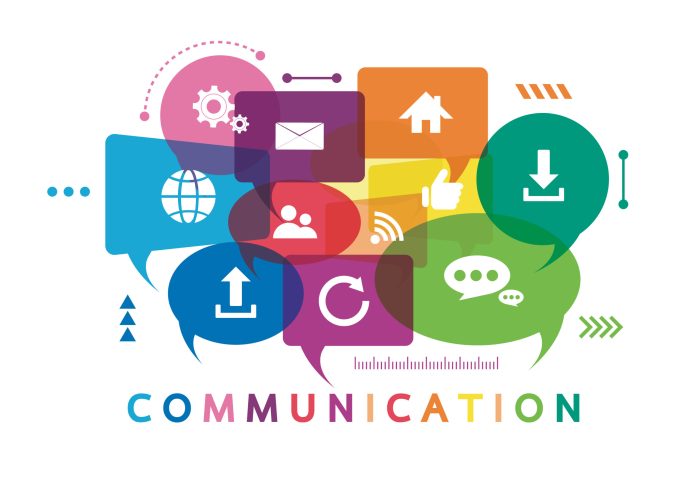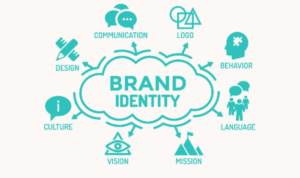Effective Communication Skills are essential for thriving in personal and professional environments, shaping the way we connect and collaborate with others. From fostering strong relationships to boosting career prospects, these skills play a pivotal role in our daily interactions.
Delving deeper into the nuances of communication, we explore the key components that make up effective communication, shedding light on the significance of active listening, nonverbal cues, and the art of conveying messages with clarity and empathy.
Importance of Effective Communication Skills
Effective communication skills are essential in both personal and professional settings. In personal relationships, strong communication can foster trust, understanding, and intimacy. In a work environment, effective communication promotes teamwork, productivity, and a positive organizational culture.
Positive Impact of Strong Communication Skills
- Clear communication reduces misunderstandings and conflicts, leading to stronger relationships.
- Active listening shows respect and empathy, improving rapport with colleagues and clients.
- Confident communication builds credibility and trust, enhancing leadership qualities.
Consequences of Poor Communication Skills
- Misinterpretations and confusion can result in errors, delays, and costly mistakes.
- Ineffective communication may lead to strained relationships, resentment, and low morale.
- Lack of clarity and transparency can hinder progress and innovation within a team or organization.
Contribution to Career Success
- Strong communication skills are highly valued by employers and can set individuals apart in job interviews and promotions.
- Effective communication leads to better negotiation, conflict resolution, and problem-solving abilities in the workplace.
- Clear and concise communication helps in delivering impactful presentations and influencing key stakeholders.
Key Components of Effective Communication
Effective communication involves several key elements that are essential for clear and successful interactions. These components include active listening, nonverbal communication, clarity, conciseness, and empathy.
Active Listening, Effective Communication Skills
Active listening is a crucial component of effective communication as it involves fully concentrating on what is being said, understanding the message, and responding thoughtfully. By actively listening, individuals can show respect, build trust, and avoid misunderstandings in conversations.
Nonverbal Communication
Nonverbal communication plays a significant role in conveying messages accurately. This includes body language, facial expressions, gestures, and tone of voice. Paying attention to these nonverbal cues can help individuals understand the true meaning behind the words spoken and improve overall communication.
Clarity, Conciseness, and Empathy
Clarity in communication ensures that the message is easily understood by the recipient. Being concise helps in delivering information effectively without unnecessary details. Empathy, on the other hand, involves understanding and sharing the feelings of others, which fosters a deeper connection and promotes effective communication. By incorporating these elements, individuals can communicate more clearly, build stronger relationships, and avoid conflicts.
Types of Communication Skills

Verbal and nonverbal communication skills play a crucial role in conveying messages effectively. Written communication skills are also significant in various contexts, while interpersonal and digital communication skills are essential for building relationships and navigating the modern age.
Verbal Communication Skills
Verbal communication involves the use of spoken words to convey messages. It includes tone of voice, pitch, volume, and speed of speech. Effective verbal communication can enhance understanding and build rapport in personal and professional settings.
Nonverbal Communication Skills
Nonverbal communication refers to gestures, facial expressions, body language, and eye contact. It can often convey more meaning than verbal messages. Understanding and utilizing nonverbal cues can help in interpreting messages accurately and establishing connections with others.
Written Communication Skills
Written communication skills are essential in various contexts, such as emails, reports, letters, and social media posts. Clear and concise writing can help in delivering messages accurately and professionally. In academic and professional settings, strong written communication skills are crucial for conveying ideas effectively.
Interpersonal Communication Skills
Interpersonal communication skills are vital for building relationships, resolving conflicts, and collaborating with others. Active listening, empathy, and feedback are key components of effective interpersonal communication. Developing these skills can strengthen personal connections and improve teamwork in both personal and professional settings.
Digital Communication Skills
In the modern age, digital communication skills are essential for interacting online through emails, video calls, social media, and messaging platforms. Understanding digital etiquette, adapting to different communication styles, and utilizing appropriate technologies are crucial for effective digital communication. These skills are increasingly important for maintaining relationships and staying connected in today’s digital world.
Strategies to Improve Communication Skills: Effective Communication Skills

Effective communication skills are crucial in all aspects of life, whether in personal relationships, academic settings, or professional environments. Here are some practical strategies to enhance your communication skills:
Enhancing Active Listening Skills
- Give the speaker your full attention by maintaining eye contact and avoiding distractions.
- Practice empathy by trying to understand the speaker’s perspective and emotions.
- Ask clarifying questions to ensure you have understood the message correctly.
- Reflect on what was said before responding to demonstrate active listening.
Improving Clarity and Articulation in Verbal Communication
- Speak slowly and clearly to ensure your message is easily understood.
- Practice proper pronunciation and enunciation to improve articulation.
- Avoid using jargon or complex language when communicating with a general audience.
- Use pauses effectively to emphasize key points and allow for better comprehension.
Adapting Communication Style to Different Audiences
- Be aware of the cultural background and communication preferences of your audience.
- Adjust your tone, language, and nonverbal cues to suit the specific audience you are addressing.
- Consider the level of knowledge and expertise of your audience when conveying information.
- Tailor your message to resonate with the values and beliefs of the audience for better reception.
Developing Effective Written Communication Skills
- Organize your thoughts before writing to ensure a clear and coherent message.
- Use proper grammar, punctuation, and spelling to enhance the readability of your written communication.
- Seek feedback from others to improve the effectiveness of your written communication skills.
- Practice writing regularly to develop a strong and concise writing style.






